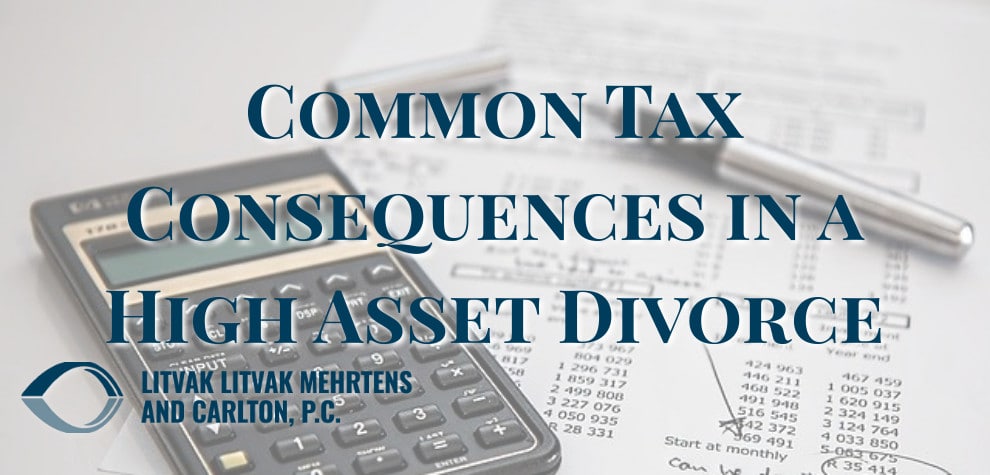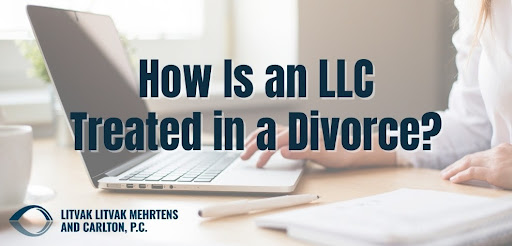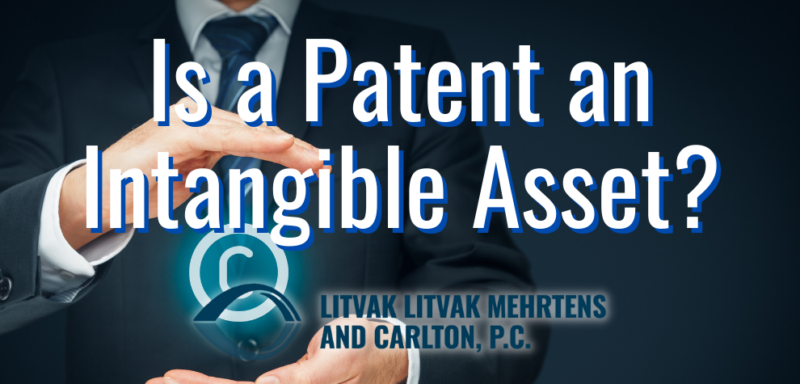Most divorces see an even division of assets between spouses. Having clearly defined assets and not having a high net worth makes this process easy. But what if the property has several hundred thousand dollars in their savings account? What about large amounts of property? Significant wealth between spouses, or high assets, can lead to difficulties in any divorce case. If you are undergoing a high asset divorce, you want experienced divorce attorneys Litvak Litvak Mehrtens and Carlton P.C. on your side.
As if a high asset divorce isn’t complex enough, tax consequences make the divorce even more complex. Tax implications of a high asset divorce will make the divorce feel much less like a settlement process and more like a consequence. This is just another reason to have an experienced family lawyer on your side, who understands how property, retirement assets, and other facets of your settlement will be taxed.
Change of Filing Status
Divorces are likely to change one’s filing status. You and your spouse can no longer file joint returns. As you move forward with your high asset divorce, make sure you understand the implications of your filing status change and adjust your withholdings as needed.
Liquidation of Valuable Assets and Possible Capital Gains Taxes
A capital gains tax is a tax on the profit from the sale or investment of property. Sometimes, divorcing couples with high assets might liquidate their property and assets. If you are considering this, be careful. Liquidation of assets could trigger capital gains tax liability. This means that you could be taxed on the sale or investment of a property gained in the divorce.
If a couple owns several properties, they will likely be worth more than the original price and a capital gains tax will be taken. Property that is transferred as incident to a divoce won’t be taxed to the person receiving the property right away. If or when the owner decides to sell the property down the road, that’s when the taxes will come!
Capital gains taxes are determined by calculating the change in value of the property from the time the property was acquired by the couple to the time of sale. These taxes do not consider the property’s value at the time of the transfer.
Child Tax Credits and Related Exemptions
If you and your spouse have children, you must decide who gets the related child tax credits and exemptions. The IRS asserts that only one taxpayer may claim a child in a specified tax year.
Claiming a dependent child can provide or increase certain breaks. This includes child or dependent tax credits, earned income credit, or a more favorable filing status. But, for those who are divorced or legally separated, it can be difficult to determine who can claim the child or children as dependents.
Generally, the parent who has primary physical custody of the child may first claim the child as a dependent. Some divorce attorneys will often advise the couple to allow the higher income parent to claim the child, as this can lead to more tax savings.
Division of Retirement Accounts and Retirement Benefits
Tax-advantaged savings accounts such as a 401K or an IRA (individual retirement account) are taken into account in a high asset divorce. It is imperative to protect your savings so as not to get hit with early withdrawal penalties.
Having an experienced divorce attorney is essential, as we can help you avoid incurring tax penalties while dividing up your retirement holdings.
Taxation of Spousal Support
In a high asset divorce, one spouse might make more than the other. In this situation, the spouse with lower income may ask for financial assistance, known as spousal support. However, even spousal support may be taxed. The spouse paying support can write it off as a tax deduction, while the receiving spouse will need to claim the support as taxable income.
The Tax Cuts and Jobs Act (TCJA), implemented in 2017, has started changing the way individuals file taxes. If you are affected by this change, we’ll be sure to keep you informed, and to adjust the way we handle your case.
Since the implementation of this act, there has been a shift-a push for alternative methods of spousal maintenance. This can be through the use of qualified domestic relations orders on retirement accounts, outright transfers of retirement accounts, IRAs, or attempts at lump sum payments of spousal maintenance in the form of transfers of valuable property.
This also creates a shift in negotiating power. The lower-earning spouse previously had a bargaining chip in the form of tax benefits they could use to negotiate monthly support payments. Now, the arguments revolve around smaller amounts of assets.
Contact the Experienced Divorce Attorneys Litvak Litvak Mehrtens and Carlton, P.C.
When filing for divorce, you might not consider many of these tax consequences in the process. High asset divorces come with high stakes and high tax implications. The best way to protect yourself and your assets is to hire an experienced divorce attorney at Litvak Litvak Mehrtens and Carlton, P.C. We know the tax implications, and we’ll walk you through this complicated process. As experienced Denver high asset divorce attorneys, we won’t leave anything to surprise. We’ll make sure you understand the tax implications before you that you can prepare for the financial loss that often comes with settlement gain. This will also include avoiding any fraud that may result from someone who is inexperienced in this area.
In a high asset divorce, your assets won’t stay the same, but with the professional help of Litvak, Litvak, Mehrtens, and Carlton, P.C., you’ll receive a well thought-out plan to put you in the best position for the most fair settlement possible.
If you’re in need of an attorney, contact us today at 303-951-4506 or fill out our online intake form here.






